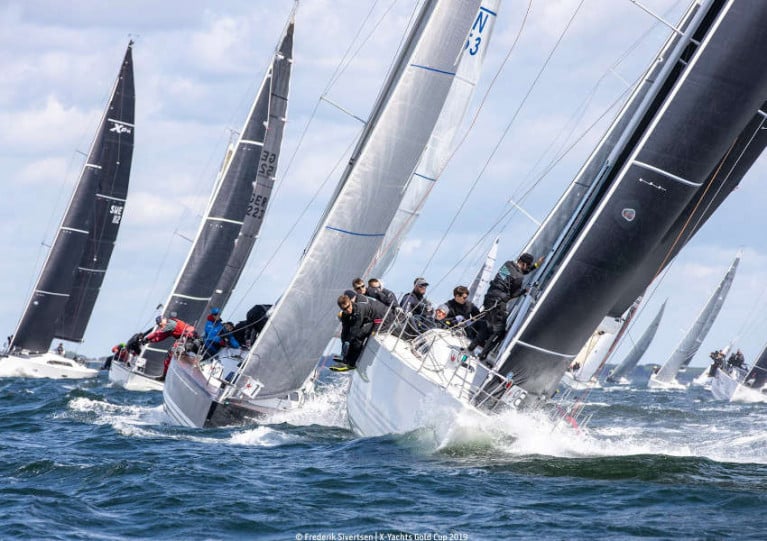Displaying items by tag: Aarhus
Olympic 49er Skiffs Head for Denmark in Summer of 2022
In July 2022, one of the largest sailing championships of the year will be held in Aarhus since the Sailing World Championships in 2018.
The regatta will be one of the important milestones for the Paris Olympics 2024, just three years away.
From 5 to 10 July, three of the classes will thus revisit Aarhus for the European Championships in 49s, 49erFX, and Nacra 17.
As regular Afloat readers will know, there is a new force in Irish 49er sailing since March, the month in which young guns Robert Dickson and Sean Waddilove put double Olympian Ryan Seaton and Seafra Guilfoyle to the sword to claim the last available 49er place for Tokyo.
Up to 200 crews from over 35 different nations are expected to compete in 49er, 49erFX, and Nacra 17 in Aarhus, representing a major hosting of an international sailing championship by Denmark.
Aarhus has previously hosted the Hempel Sailing World Championships, and The Ocean Race 'fly by' in 2018. In 2021, a 29er World Championships, and a SailGP are in the pipeline, while 2023 will be the year of the first Danish stop-over in The Ocean Race's history.
X-Yachts To Host 2021 Gold Cup In Aarhus
X-Yachts will join with Sailing Aarhus to host its next Gold Cup in Denmark’s second-biggest city next summer.
The dates to save are 21-23 May with registration, as well as a detailed programme of events, expected to go online soon.
And the celebration is set to be a big one, following last year’s 40th anniversary bash and the restrictions on sailing amid this year’s coronavirus crisis.
“It is of the essence that X-Yachts owners can meet and enjoy a couple of days with like-minded and to have fun on the water,” says X-Yachts chief executive Kræn Nielsen.
“These kinds of experiences will always be remembered, and Aarhus is a perfect place to meet and it is a charming city with many cultural attractions … something for everyone.”




























































